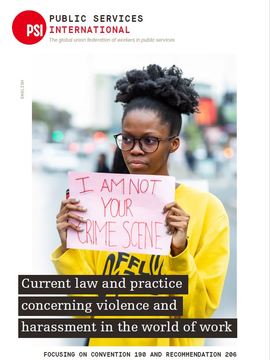
A comparative analysis of ILO Convention 190, Istanbul Convention, Social Partners Framework Autonomous Agreement - instruments in Europe that, to differing degrees, cover the area of violence and harassment at work.
- Read this in:
- en
In June 2019, the ILO adopted the Convention 190 concerning the elimination of violence and harassment in the world of work. Unions have continuously called for an instrument of this nature, and we welcome the adoption of this Convention.
However, when it comes to Europe, there are also other instruments that, to differing degrees, cover the area of violence and harassment at work. Therefore, we developed this comparison to provide our affiliates with a useful tool to evaluate the ILO Convention n.190, in order to effectively advocate for its ratification by their governments, while they keep pushing for the European Union to ratify the Istanbul Convention.
The methodology we decided to apply is a simple comparison between the ILO Convention and other two key instruments in Europe, namely the Council of Europe’s Istanbul Convention (2011) and the Social Partner Autonomous Framework Agreement on Harassment and Violence at work (2007)1. This would allow us to identify potential overlaps and differences, and therefore understand why it is so significant to endorse the Conventions’ ratification. In Annex I, it is possible to find a brief table that summarises the main points of the three documents.
See the brief presentation of the report:
Africa: Current Law and Practice concerning violence and harassment in the world of work
- Etiquetas (3)

